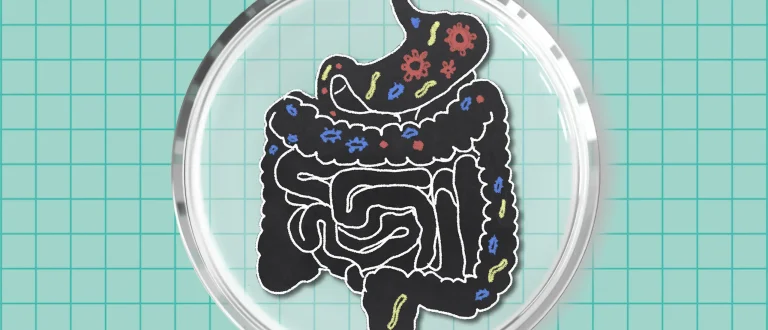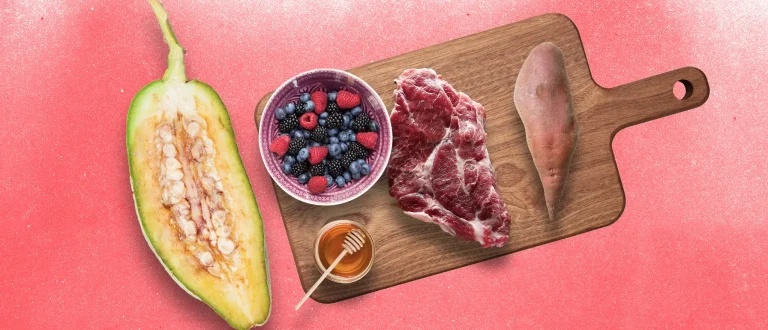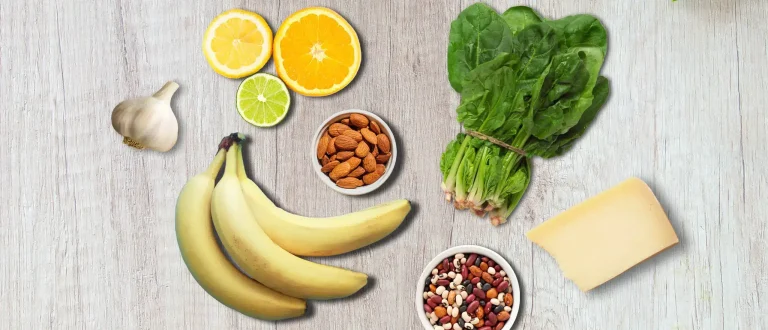Gut health is one of the biggest fixations of the longevity community, and for good reason: Research suggests that having a balanced gut microbiome—the collection of microorganisms that live in your digestive tract—may help other healthspan-supporting systems function better.
Frank Lipman, M.D., a functional medicine doctor and longevity expert, says that your gut microbiome is responsible for regulating your mood, immune system, and brain function. A healthy intestinal microbiome may also reduce your risk of chronic illness, many of which are linked to chronic inflammation that can stem from the gut.
“When people have microbiome problems, the gut wall is very, very thin,” Lipman says. “When you don’t have that protective layer, some of the metabolites of the bacteria or some by-products of food actually leak through this very thin layer and get into the bloodstream. This creates inflammation.”
So, how do you know if you’ve got an out-of-whack microbiome? “If you are eating a healthy diet and you still have bloating and gas and you’re not having a good poop every day, chances are you got a gut problem,” Lipman says. Sound familiar? It’s time for intervention.
Dr. Lipman discusses how caloric intake, keto, intermittent fasting, and a balanced microbiome are involved in optimizing your life- and healthspan.
Balance Your Microbiome
Get enough fiber. Drink your water. And eat a balanced diet. The golden rules of good digestion are simple—but even people who stay strict to this protocol could have gut problems, per Lipman.
“It’s not as simple as ‘you are what you eat.’ You are what you eat, but you also are what your gut bacteria are eating,” Lipman says. “In my practice, the first area I’ll work on is the microbiome. Usually, my patients’ diets are pretty good, but their microbiome is screwed up.”
The solution: Stay away from processed foods and opt for microbiome-supporting foods instead. “Cut back on sugar and high-carb foods. Add lots of fiber-rich veggies, and keep the starchy ones to a minimum,” Lipman wrote in a blog.
Get to know Pre-, Pro-, and Postbiotics
“When there’s an imbalance—an overgrowth of either bacteria or fungi or parasites—we can develop all sorts of problems,” he says. “Normally people will start having bloating, reflux, gas, and constipation or diarrhea. You can help support your gut health with a mix of prebiotics, probiotics, and postbiotics,” says Lipman.
Probiotics
Probiotics are beneficial strains of bacteria and yeast that can improve your health by boosting your immune response, aiding digestion, and improving emotional health. Supplementing with probiotics can help your microbiome rebalance after a course of antibiotics or if you have an overgrowth of harmful bacteria in your gut. Lipman recommends supplementing with probiotic foods like kimchi, olives, and sauerkraut.
Prebiotics
Prebiotics are fiber-packed foods like stalks and stems. They’re food for the good bacteria in your gut. While your body won’t digest them, Lipman says that these supply the probiotics with material to produce beneficial metabolites. Foods like almonds, dandelion greens, leeks, and asparagus are great sources of prebiotics.
Postbiotics
Postbiotics are the metabolites created when probiotics digest prebiotics, some of which may be anti-inflammatory. Healthy metabolites, like enzymes, peptides, complex sugars and organic acids support your immune and brain function, healthy blood pressure and cholesterol levels, and weight management, according to Lipman. You can increase the amount of postbiotics in your system by supplementing with probiotics and supplying them with an adequate amount of prebiotics.







